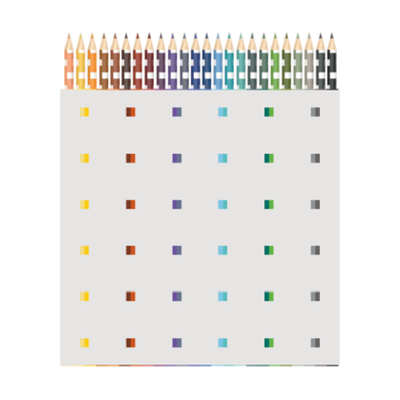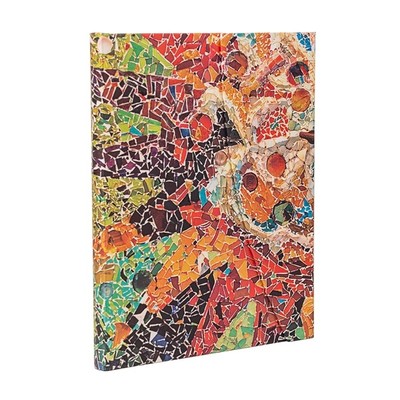Other Features -
100% recycled binder boards
Decorative printed cover paper
FSC-certified Fedrigoni mixed media art paper (suitable for acrylic, watercolour, pen and pencil)
Threaded stitching and glue, as needed
Acid- and chlorine-free sustainable forest paper
Perforated interior pages
More about the Inspiration for the Design-
Original Art:: Leonardo da Vinci’s Codex Leicester: Era: early 1500s: Region: Italy
Leonardo da Vinci’s (1452–1519) sketches and notes allow us to peer into the mind of a genius. This Sun & Moonlight design features Da Vinci’s observations on the light of the moon relative to the radiance of the sun.
The only major scientific work written in Da Vinci’s own hand, the Codex Leicester offers a glimpse into one of history’s most celebrated minds and reveals how he shone a light on humanity’s potential for greatness.
In a body of work that is perhaps unparalleled in history, Leonardo da Vinci’s (1452–1519) sketches and copious notes allow us to peer into the mind of a genius. He was a consummate draftsman and sketch artist, and carefully recorded the travels of his mind in mirror-image cursive. A man of unquenchable curiosity spanning an infinite spectrum, he was especially taken with the concepts of grace and geometric structure of the universe.
Renaissance biographer Giorgio Vasari describes Leonardo as having qualities that “transcended nature,” a man who displayed an “infinite grace in everything he did.” French critic and historian Hippolyte Taine likely agreed, saying Da Vinci was “so far ahead of his own century and the following centuries.” And, indeed, it is not just the man’s artwork (such as the Mona Lisa) that continues to transcend cultural and temporal boundaries, but his scientific thoughts and discoveries, as well.
Five centuries after his death, his abilities remain as remarkable to comprehend now as they were during his lifetime. In fact, we have been so inspired by Da Vinci’s vast and wide-ranging genius that over the past twelve years we have released two separate collections featuring his work.








